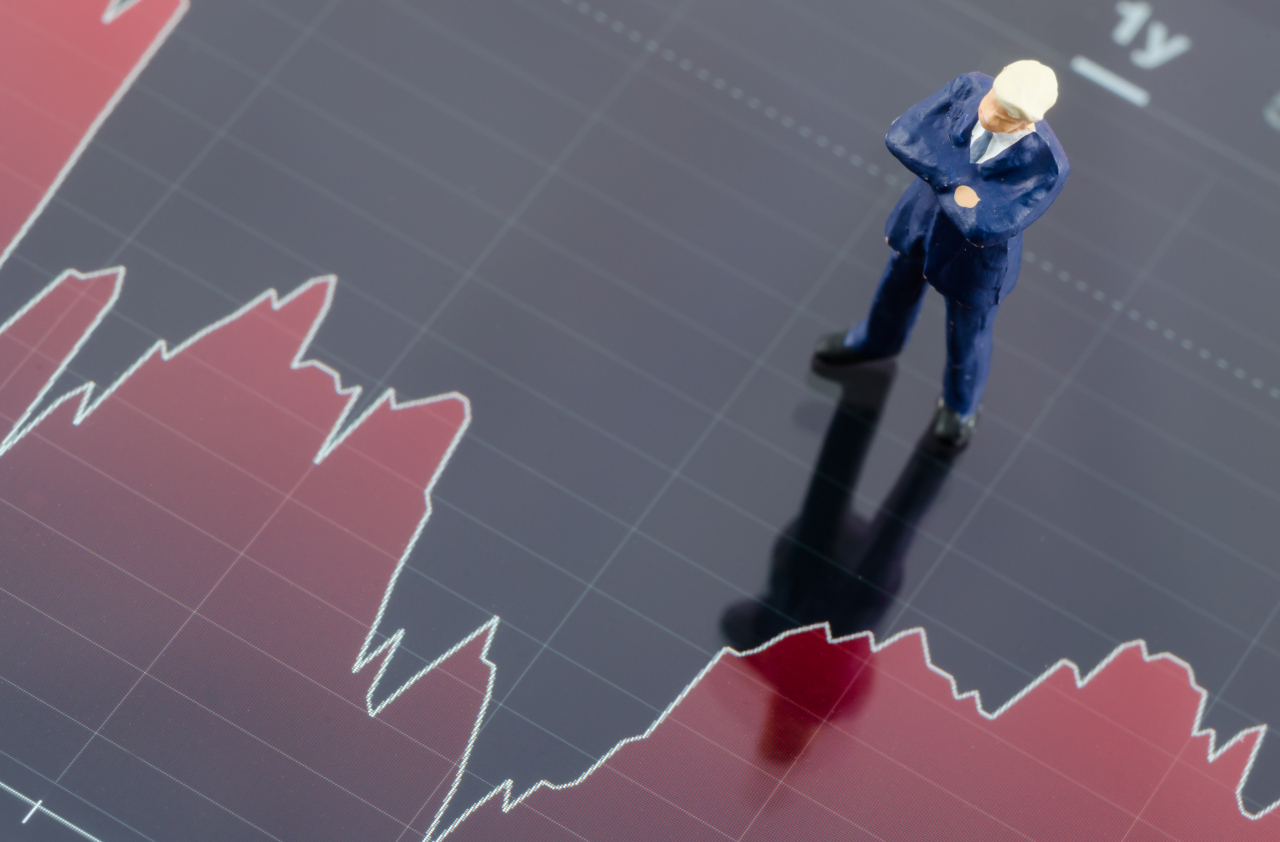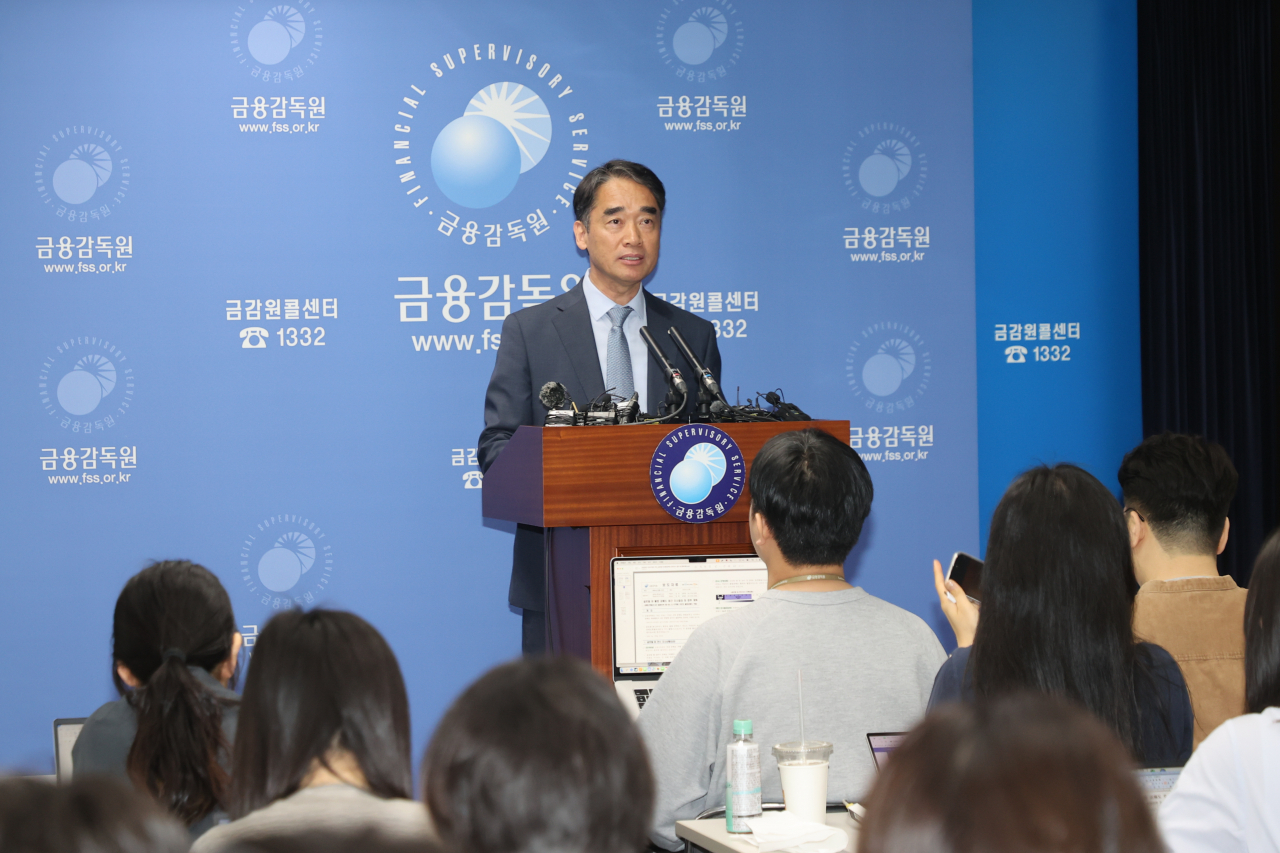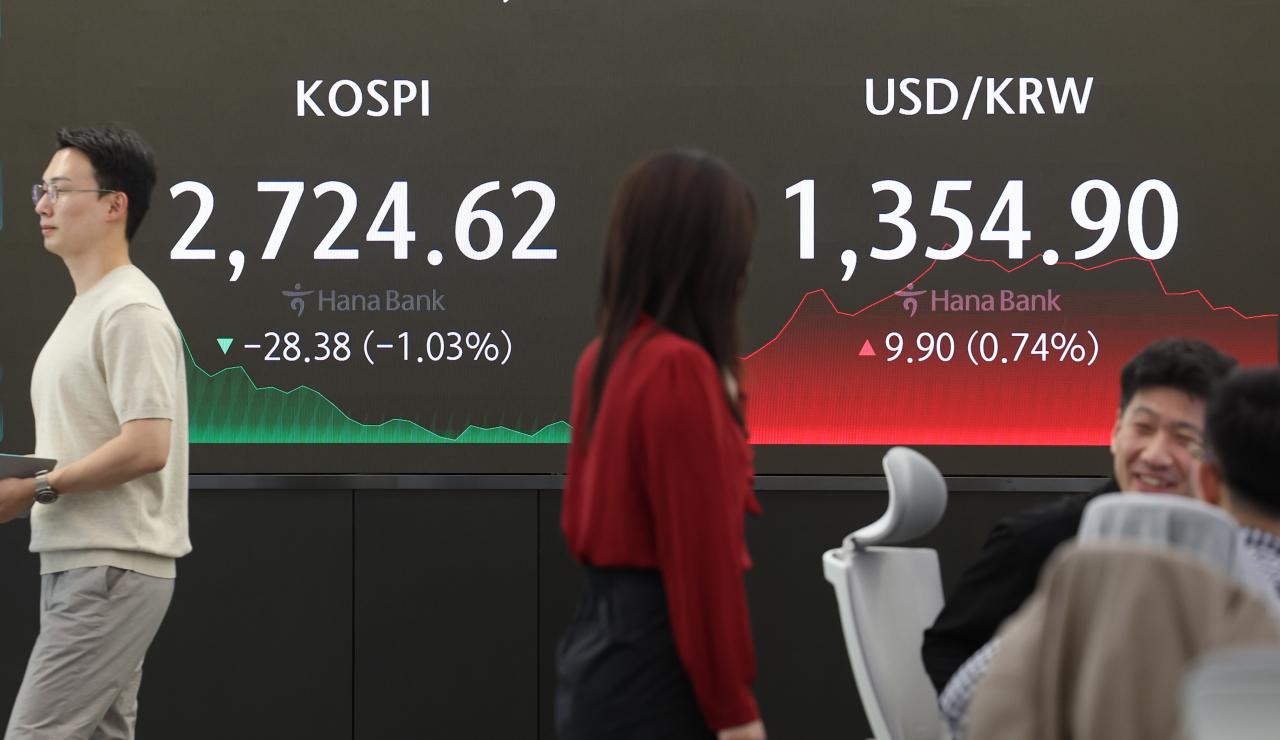[KH Explains] Why Korea's so tough on short selling
Following November ban, 9 foreign banks busted for illegal stock short sales worth $155m
By Choi Ji-wonPublished : May 19, 2024 - 16:10

Since November, South Korea has intensified its crackdown on illegal short selling by institutional investors, uncovering widespread practices among global banks.
In an interim results announcement earlier this month, the Financial Supervisory Service revealed that all nine banks investigated had engaged in illegal short selling totaling approximately 211.12 billion won ($155.8 million) in Korean stocks. With ongoing investigations into the remaining foreign five banks, this figure is expected to rise.
This disclosure has prompted a further outcry from retail investors, who have been calling for stricter regulations on naked short selling. Defined as illegal under Korea’s Capital Markets Act, naked short selling involves shorting stocks without first borrowing or securing the availability for borrowing.
Not just in Korea
While recognizing the need for regulatory improvement, authorities noted that these revelations partly stem from Korea's stricter regulation of naked short selling compared to other jurisdictions, rather than solely from malicious intent by institutions.
“We don't perceive global banks as particularly dismissive of Korea," FSS Senior Deputy Governor Hahm Yong-il stated during a brief about the investigation results.
"We are aware that large-scale illegal short selling hasn't been reported elsewhere, suggesting either Korea enforces stricter regulations, or investment banks limit such activities to Korea. But, other countries haven't conducted such extensive and specific probes into short selling. If they did, I believe the outcomes would be similar," he added.
Hahm's remarks align with the FSS' findings that most naked short selling cases stem from inadequate balance management systems, rather than unfair trading practices. While sanctioning unlawful behaviors is essential, authorities emphasize the necessity for systematic improvement to effectively manage short selling.

Stricter control
In response, the regulatory body is developing a computerized system to curb illegal short selling. Last month, the FSS introduced the "Naked Short Selling Detection System," automating institutional investors' stock balance management to filter out sell orders that surpass their holdings and prevent unintended naked short selling.
Although the introduction of such a system appears promising, analysts have voiced their concerns about excessive burden and control, not only regarding naked short selling but all short selling, until enhancements are fully implemented in the real market.
"What the authorities are asking institutions to do is establish a new system tailored specifically for the Korean market. This involves significant financial investment, which raises entry barriers," Kang Kyeong-hoon, a business professor at Dongguk University, told The Korea Herald.
Kang also raised doubts about the system's effectiveness, highlighting its reliance on the voluntary participation of institutions. The upcoming two-step process involves institutions initially managing short selling balance and transaction records autonomously, followed by centralized monitoring of unfiltered naked short selling by authorities.
Forcing their involvement would only further distance Korea from the global standard, he warned.
However, despite such apprehensions, the FSS aims to mandate the system through legislation. To make the monitoring system effective, the Capital Market Act needs revision to legally compel institutional investors to disclose their short selling balance information to external entities.
“This implies a pre-screening system. Not only does this incur additional costs for institutions, but it's unprecedented in other countries. Established market participants may comply reluctantly, but it will pose a significant hurdle for newcomers,” noted Hwang Sei-woon, a senior fellow researcher at the Korea Capital Market Institute.
Extension of ban
Even if the amendment successfully passes at the parliamentary level, establishing the computerized system is anticipated to take at least a year.
This implies that the current short selling ban, scheduled to be lifted in July, appears poised for an extension. Market watchers project the ban will likely persist at least throughout this year, until when the FSS aims to wrap up its global banks investigation. Should this happen, the ban would surpass the country's previous 14-month record -- enforced from March 2020 to May 2021 -- set during the COVID-19 pandemic.
Such a prolonged prohibition could hinder Korea's push for market enhancement, especially impeding its efforts to advance from an emerging to a developed market in the Morgan Stanley Capital International index. Last June, MSCI cited the restriction on short selling as a factor contributing to its decision to retain the emerging market status.
"With such a strong short selling ban in effect, the likelihood of an MSCI index upgrade will remain low," remarked Hwang.

Dominant retail investors
Despite concerns about market contraction, the local government remains cautious about easing short selling regulations due to the dominance of retail investors in the local stock markets. Some 60 percent of transactions in the Korean stock markets are made by retail investors, nearly double the levels observed in other major markets like the US and Japan.
“Short selling itself isn’t a common practice among individual investors. Leveling the playing field is important, but that cannot mean applying the exact same rules to the institutions and the individual traders,” Kang noted.
Hwang urged authorities to keep their policies consistent for market stability: “Short selling plays its role in the market by discovering price and enhancing market efficiency. While manipulation risks exist in all trading activities, not just short selling, the solution isn’t a complete ban. Regulations should target naked short selling specifically."
During an investor relations event in New York on Thursday, FSS Gov. Lee Bok-hyun agreed that stock short sales should be resumed as they play a role in evaluating true market potential. But he remained cautious about the immediate resumption of the practice, citing a series of illegal cases discovered over the past few months.
“We will review the possible resumption and announce our official stance by late June,” he said.



















![[Today’s K-pop] Treasure to publish magazine for debut anniversary](http://res.heraldm.com/phpwas/restmb_idxmake.php?idx=642&simg=/content/image/2024/07/26/20240726050551_0.jpg&u=)